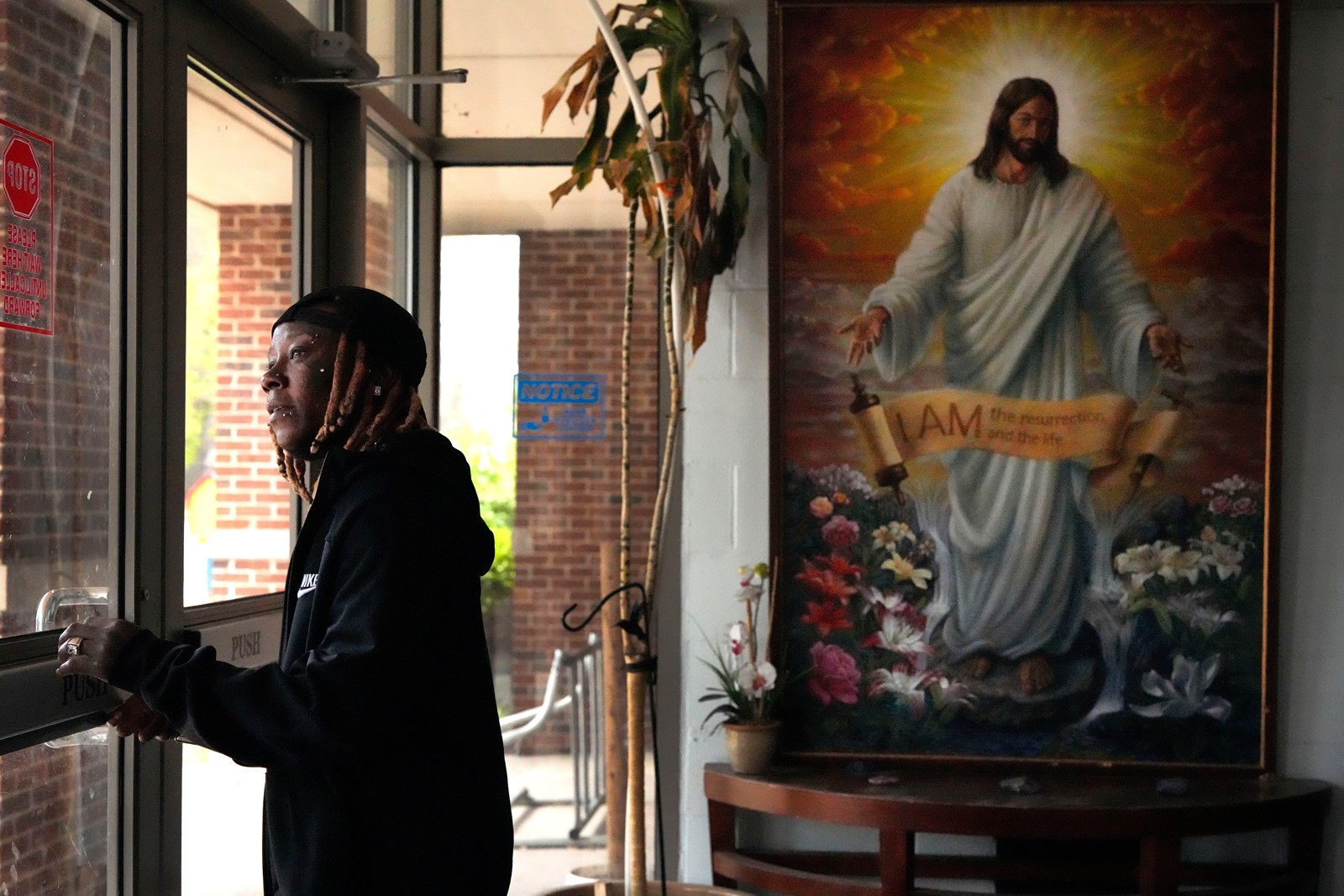

As a transgender man, the words “you’re a girl” gutted Tazz Webster, a taunt hurled at him from the day he moved into his St. Louis apartment.
The government-subsidized building’s manager also insisted on calling Webster by the wrong name, the 38-year-old said, and ridiculed him with shouts of, “You’re not a real man!”
“I just felt like I was being terrorized,” Webster told The Associated Press. “I felt that I was being judged and mistreated, like I was less of a human being.”
Then one day in March 2022, the manager shoved Webster so hard he stumbled backward. After regaining his balance, Webster said he pushed the manager back. Four months later he was homeless.
Webster filed a complaint with the U.S. Department of Housing and Urban Development’s Fair Housing and Equal Opportunity office, the agency tasked with investigating housing discrimination and enforcing the landmark Fair Housing Act that guarantees equal access to housing for all Americans.
Webster’s harassment allegation was serious enough that it was investigated for more than two years, until the office suddenly notified him in February it was dropping his case without a finding, citing lack of jurisdiction.
The timing of the closure was not a coincidence.
In the months since President Donald Trump took back the White House and installed a loyalist to lead the federal housing department, HUD Secretary Scott Turner and his team have moved swiftly and strategically to undo, uproot and remake the agency’s decades of work and priorities.
In the crosshairs is an intense focus on transgender people, as HUD retreats from long-established fair-housing protections by closing their discrimination complaints and, more broadly, moving to undo the Obama-era Equal Access Rule that cemented transgender people’s rights to discrimination protection in housing.
“It’s time to get rid of all the far-left gender ideology and get government out of the way of what the Lord established from the beginning when he created man in his own image — male and female,” Turner said in announcing in February that he was halting enforcement of the Equal Access Rule.
At issue is the fact that discrimination against LGBTQ+ people wasn’t specifically cited in the Fair Housing Act. But the Equal Access Rule enacted in 2012 under former President Barack Obama further defined sex discrimination to include sexual orientation and gender identity.
The policy was expanded in 2016 to cover transgender people seeking help at federally funded emergency shelters, escalating opposition from the right.
In 2020, the first Trump administration unsuccessfully moved to relieve shelters of any obligation to serve transgender people. Now, advocates fear an emboldened Trump will go further to forbid shelters from accommodating gender identity altogether, as his administration announces unspecified revisions to the Equal Access Rule.
“Our protections can’t be a pingpong ball that changes every four years,” said Seran Gee, an attorney for Advocates for Trans Equality.
After being left with permanent injuries in a car crash, Webster, who survives on disability payments, was grateful to move in April 2021 into an apartment near the city’s 1,300-acre Forest Park, scene of the 1904 World’s Fair and home to museums and a zoo.
His rent was initially less than $200 per month, he said. That is because Branscome Apartments had a contract with the federal government to provide subsidized housing to people with disabilities and low-income seniors.
But the HUD money also comes with strings, said Linda Morris, staff attorney for the ACLU’s Women’s Rights Project, who leads the organization’s housing discrimination work.
“The Equal Access Rule applies to HUD-funded programs and shelters,” said Morris, who doesn’t represent Webster. “If an entity is going to accept federal funding, they have to comply.”
Under the rule, HUD-funded housing and programs must provide equal access to everyone regardless of gender identity, and can’t require intrusive questioning.
Four months after the shoving incident, Webster found his door kicked in and his belongings trashed, even though, he said, he was up to date on his rent and never received an official eviction notice.
“I had nothing,” said Webster, who had been mostly staying away from the apartment for fear of another run-in with the manager. “I was so afraid to be there, I would go to my friend’s house and spent nights at a time and then come back, switch my clothes,” and leave.


 PREVIOUS ARTICLE
PREVIOUS ARTICLE
